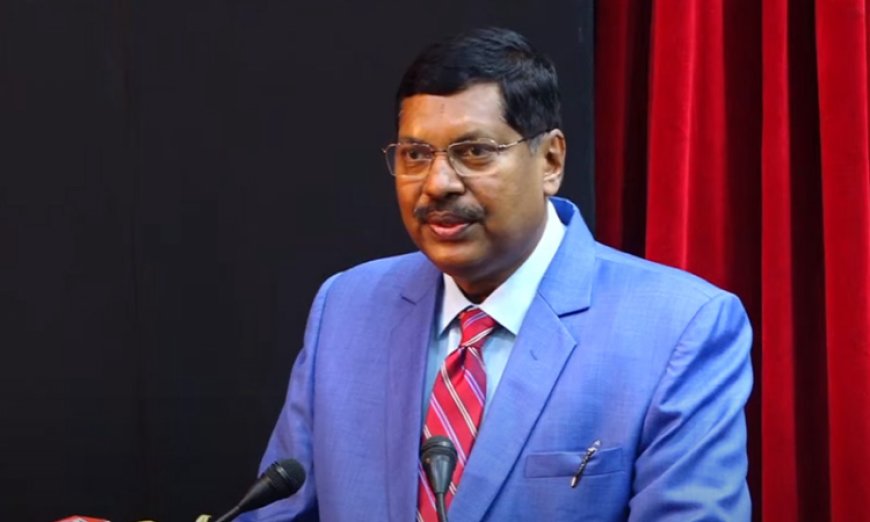CJI Gavai Sparks Debate Over Judges in Politics: A Call for Judicial Independence
CJI D.Y. Chandrachud's statement on retired judges joining politics and taking government jobs raises critical concerns about the independence of India’s judiciary. Explore what it means for the future of legal integrity.

CJI Gavai’s Candid Remarks Ignite National Debate
In a bold and unprecedented statement, Chief Justice of India (CJI) D.Y. Chandrachud has sounded an alarm over a growing trend within the Indian judiciary—the transition of retired judges into political or government roles. CJI Chandrachud underscored that such post-retirement appointments invite “scrutiny and suspicion,” potentially undermining the integrity and independence of the judiciary.
His remarks, made at a recent legal summit, have triggered widespread discussion in legal, political, and civil society circles. The concern is not new, but the timing and the growing frequency of such transitions have renewed fears over the perceived erosion of judicial impartiality in the country.
The Context Behind the Statement
India has long maintained a delicate balance between the executive, legislative, and judicial branches of government. However, this balance appears to be under stress. Several high-profile cases in recent years have drawn attention to judges taking up Rajya Sabha nominations, heading commissions, or being appointed as governors soon after retirement.
CJI Gavai's remarks are a veiled critique of this phenomenon. According to The Indian Express, the Chief Justice expressed concern that judges accepting such roles may appear to have been rewarded for favorable judgments during their tenure.
“Once a judge starts thinking about a post-retirement job, the impartiality of their decisions comes into question,” he stated.
– CJI D.Y. Chandrachud
Legal Community Reacts
Senior advocates, constitutional experts, and former judges have offered varying perspectives. While some, like Justice Madan B. Lokur, welcomed the CJI’s clarity, others defended post-retirement roles as a way to utilize experienced jurists for public service.
Speaking to Bar & Bench, constitutional scholar Gautam Bhatia argued that "institutional independence is undermined when judges have one eye on post-retirement benefits."
Yet others caution against a blanket ban. They argue that some roles, especially in judicial commissions or arbitration, may still require the wisdom and balance that retired judges bring.
The Political Angle
The political ramifications of CJI Gavai’s statement are significant. Critics of the ruling government have long alleged that judicial appointments and judgments are increasingly influenced by executive pressures. CJI Gavai’s remarks may add fuel to this narrative.
Moreover, opposition leaders have started pointing to these concerns as part of a broader issue of “democratic backsliding,” referencing other institutional tensions in the country. For example, PRS Legislative Research has published reports highlighting growing delays in judicial appointments and the increasing backlog of cases—issues that could be exacerbated if judicial independence is compromised.
Comparative Global Perspectives
India is not alone in grappling with this challenge. In the United States, judges rarely take up public roles post-retirement due to a clear separation of powers and cultural norms against such practices. In the UK, while appointments to the House of Lords used to be common, recent reforms have limited such transitions.
Many experts argue that India must adopt stricter regulations or cooling-off periods before retired judges can assume political or government roles. Some have even called for a constitutional amendment to codify such norms.
The Way Forward
CJI Gavai’s call is not just a critique—it is an appeal for reform. Here are a few proposals being discussed in legal circles:
-
Mandatory Cooling-Off Period: Implementing a minimum gap of 2–3 years before judges can accept government or political appointments.
-
Transparency in Appointments: Making all post-retirement appointments public and subject to parliamentary or judicial scrutiny.
-
Ethical Guidelines: Establishing a formal code of conduct for retired judges, potentially enforced by a judicial oversight body.
As public confidence in institutions becomes increasingly vital in a polarized socio-political environment, such reforms could serve to rebuild trust.
Conclusion
CJI Gavai's remarks have served as a much-needed jolt to India's legal and political systems. While the practice of appointing retired judges to public roles may seem beneficial in theory, it carries significant risks to judicial integrity. The broader legal community and civil society must engage in a sustained dialogue to ensure that the judiciary remains free, fair, and fearless.
In an era where institutional credibility is more fragile than ever, safeguarding the independence of the judiciary is not just about judges—it's about the very foundation of Indian democracy.


















































